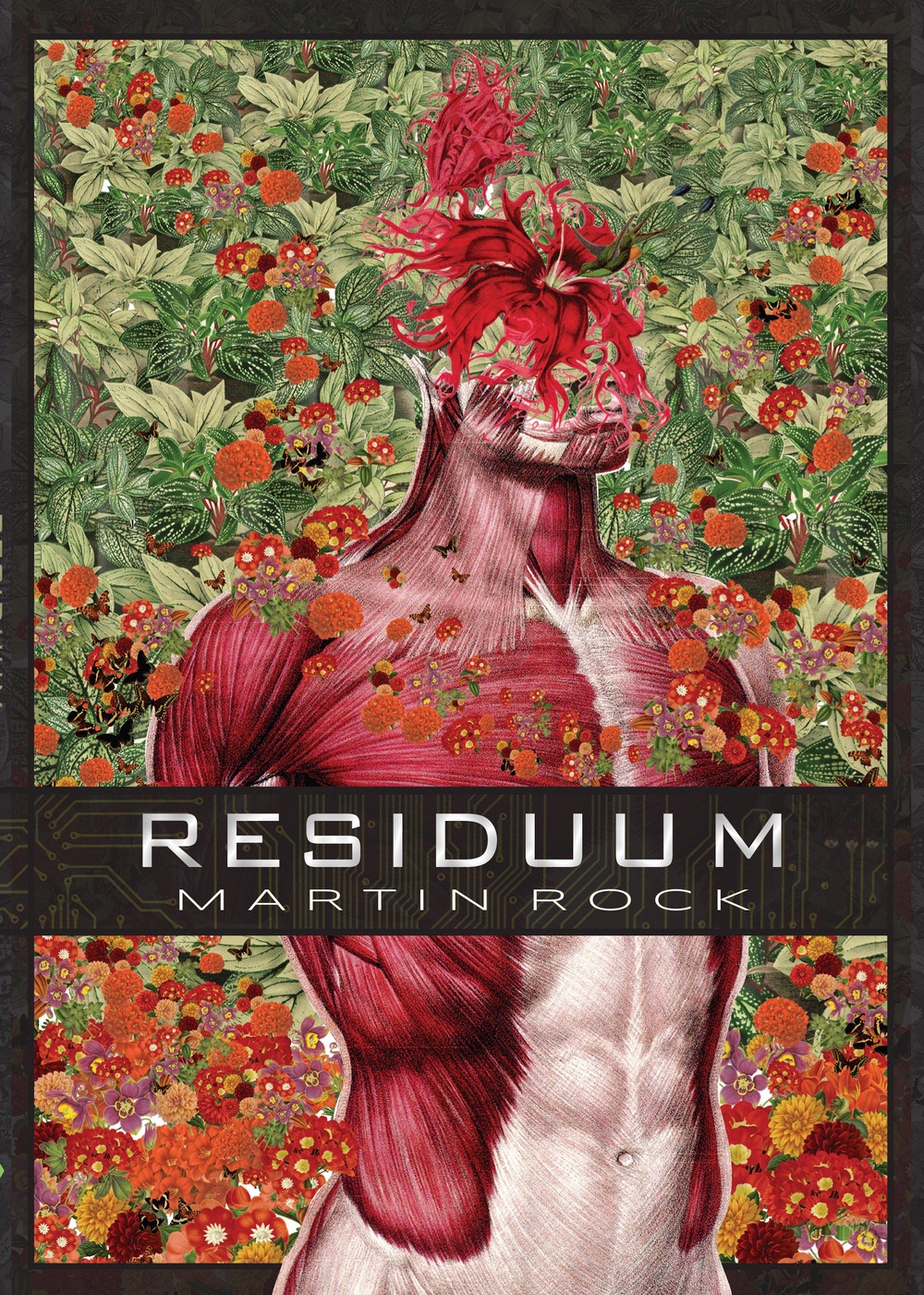
Residuum
Editor’s Choice for the Cleveland State University Poetry Center First Book Prize
“Martin Rock’s impressive debut collection, Residuum, announces itself like a command to ‘Save.’ . . . Rock’s collection is a visual and allusory opportunity for the reader: the word bank is open, the questions are asked, and the answers are here in poems that are both unexpected and fascinating.”
—Adrian Matejka, Editor of Poetry Magazine
“Placing much of his work under erasure, Rock underscores the immediacy of process and undermines the idea of the poem as a finished product. This makes the book fun to read, as the choices of phraseology come and go like hypertext.”
— Harvard Review
“Martin Rock’s first collection of poetry, Residuum, is a work of what one could call “preserved erasure.” Unlike books that black out or excise text, as though by a whimsical censor’s pen, Residuum uses the straight line of the strike-through to perform enact embody allow its resections to remain apparent… Through this method, Residuum suggests that linguistic mutation might help us migrate through “plains / pages / internet” to reach an “incorporeal mind” that lives within and through our language.”
—Zach Savich, reviewed in Poetry Northwest
“Martin Rock’s Residuum spins language into twinned helices of what is said and what is taken back, layering micro- and macroscopic images of bodies in love and space and history. It might make you a little dizzy. It might be contagious or reproducing. It might ask you to glimpse at the moments when you try to speak truly and find your words coming out all infected and in debt. It is a love poem as Williams’ Asphodel is a love poem. It is spectacular and leaves me with a head encircled by stars.”
—Heather Christle, author of in the rhododendrons
“In Residuum, Martin Rock creates the illusion of an enormous mind always in motion. ‘Meditating on the peak of a mountain last year / years ago // I held all the universe inside my skull,’ it informs us, suggesting both the intimacy and vastness of its vision. At times, these poems appear to live beyond the range of any individual, as if Emerson’s Oversoul spoke directly to, and through, us—though just as quickly they become intimate and humane, whispering softly into our ears. Always, Rock’s observations, subtractions, and revisions fascinate, disrupting any clean, centered view of the world, replacing it with brilliant abstraction.”
—Kevin Prufer, author of the fears
“Martin Rock’s remarkable debut collection, Residuum, takes on nothing less than making the unsayable (as Heidegger perceives it) ‘legible.’ I find the partial erasure form of this book dynamic, and lyrically fluid. Residuum is also moving, and genuinely funny in many spots. For all its critical engagement and thoughtfulness, it never loses the necessary, bodily pulse. Rock’s is a wonderful new voice to encounter, a poet who takes from several different canons within our poetic tradition and makes something utterly his own from them.”
—Erin Belieu, author of come hither honeycomb

DEAR MARK
Chapbook published by Brooklyn Arts Press
“Martin Rock responds to Rothko’s hushed eloquence with his own quick-hitting intimations of mortality, spiritual poems that deftly enter Rothko’s visionary space, his intimate, anguished, violent, and fateful dramas.”
—Edward Hirsch, author of The Living Fire
“DEAR MARK is an unabashed open letter to Rothko’s paintings that pushes past what the rest of us have thought of them. Martin Rock inhabits these paintings and the imagination in exciting and lyrical poems all springing from color and abstraction but ending in the strange and beautiful. Rock reminds us that art goes both ways, and it takes a talented viewer to see what’s there.”
—Matthew Rohrer, author of Army of Giants
“There’s such calm beauty in Martin Rock’s poems. The delicate pace allows us to look, listen, be present. But he’ll lead you into this blissful state, look you straight in the eyes, and tell you “The butterfly’s body is also a urinal cake / with antennae & legs braided into a rope.” He’s a philosopher and soothsayer with a strange sense of humor. “Life is a kind of rust” in his poems. So he looks to the future life, and the past life. Indeed, the poems here are concerned with life—from the primordial soup, to “on the body of a spider / death’s head.” It’s a stunning collection. One I look to for guidance in existence.”
—Bianca Stone, author of What is Otherwise Infinite

Catherine Breese Davis: On the Life and Work of an American Master
Critical volume published by Pleiades Press and the Unsung Masters Series
“With this new book, editors Collins, Prufer and Rock have given life to Davis’ poems once again. Once read, no one can take them back. No matter what, we can read and take pleasure in what she wrote. She gives us life.”
—Julie R. Enszer, reviewed in Lamba Literary
“Catherine Breese Davis: On the Life and Work of an American Master is an inspired tribute to a gifted woman. Read this book, and be rewarded with her courageous and beautiful words.”
—Valerie Wieland, reviewed in New Pages
“This book wholly succeeds in its aim, to bring to the life and work of a virtually unknown poet some belated due attention. I hope that attention will focus chiefly on Davis’s masterly verse rather than her ill-starred life. Her poems offer pleasures that are strikingly individualized, sometimes intense, and never cozy.”
—Robert B. Shaw, reviewed in Able Muse
“I have admired Catherine Davis’s exquisitely sculpted lyrics for over forty years. But it has been futile to recommend her work to others because it has been nearly impossible for anyone to find the poems, most of which were never published in book form. What a gift to have this lost poet restored to us.”
—dana gioia
“Catherine Breese Davis fills an important but unsung niche in the tradition of women’s poetry in the U.S. — and now unsung no more. The editors of this book have given us a brilliant selection from Davis’s poems, combined with illuminating writings about her work and life. This volume is a true labor of love, a priceless introduction to a lucid, poignant, and unflinching poet.”
—annie finch
“‘Go, little book,’ Catherine Breese Davis intones, echoing the venerable tradition of the envoi as she announces herself to the world. Davis renders the poetry of ages past with singular immediacy, whether wandering dark woods with Dante, warbling with Wyatt, dwelling in indolence with Keats, invoking the winged madness of Baudelaire, or chanting with Herrick of the burnished shores of poetry. This is a poet who knows ‘how to hold in mind / A place — a house or river scene — / That keeps an earlier time intact.’ That earlier time is woven of houses and rivers but also the great voices of the past who serve not as masters but as contemporaries, interlocutors, and companions. Davis is a poet seeking answers anywhere they arise — in tragedies ancient (the Eumenides) or contemporary (the assassination of MLK). ‘How does it help to see / How sick at heart we are / Or find out where we erred?’ wonders Davis. These unsung songs are living puzzles that ‘master time.’”

